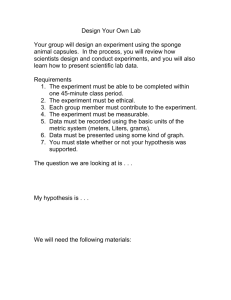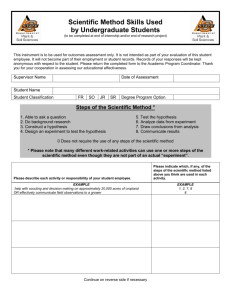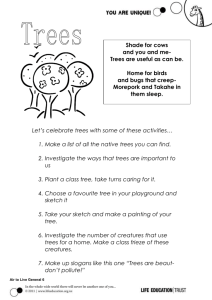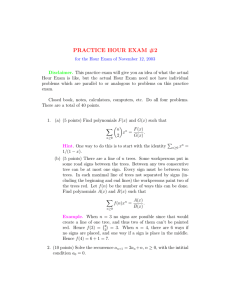Environmental Science Vocabulary Definitions Unit 1 1. Sound
advertisement
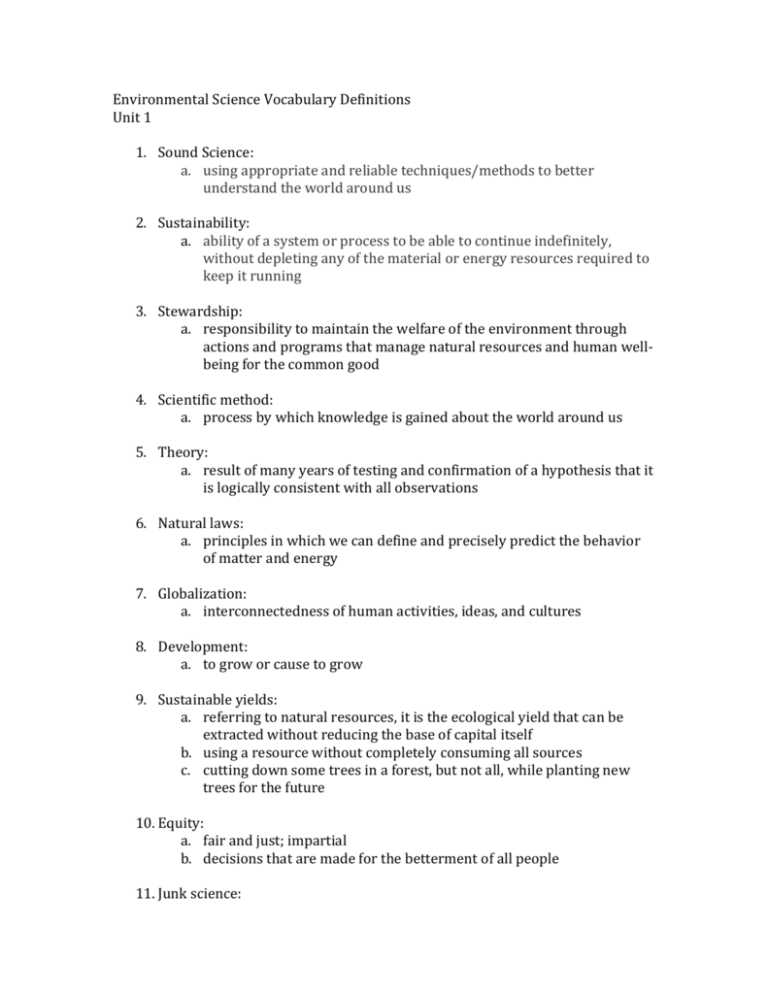
Environmental Science Vocabulary Definitions Unit 1 1. Sound Science: a. using appropriate and reliable techniques/methods to better understand the world around us 2. Sustainability: a. ability of a system or process to be able to continue indefinitely, without depleting any of the material or energy resources required to keep it running 3. Stewardship: a. responsibility to maintain the welfare of the environment through actions and programs that manage natural resources and human well-­‐ being for the common good 4. Scientific method: a. process by which knowledge is gained about the world around us 5. Theory: a. result of many years of testing and confirmation of a hypothesis that it is logically consistent with all observations 6. Natural laws: a. principles in which we can define and precisely predict the behavior of matter and energy 7. Globalization: a. interconnectedness of human activities, ideas, and cultures 8. Development: a. to grow or cause to grow 9. Sustainable yields: a. referring to natural resources, it is the ecological yield that can be extracted without reducing the base of capital itself b. using a resource without completely consuming all sources c. cutting down some trees in a forest, but not all, while planting new trees for the future 10. Equity: a. fair and just; impartial b. decisions that are made for the betterment of all people 11. Junk science: a. untested theories or ideas that are presented as scientific fact b. i.e.: the earth is flat 12. Concepts: a. ideas about how things work b. water cycle concept is an example 13. Observations: a. information that is taken in through the 5 senses (def. via Lee Houseman) b. sight, sound, touch, smell, taste 14. Questioning: a. expression used to gain information; may be a doubt or objection to something b. results in learning 15. Predicting: a. saying that something will happen b. based off of background knowledge, usually 16. Hypothesizing: a. proposed explanation for an observation and question b. If…, then… statement c. may be supported or rejected 17. Experimenting: a. the act of testing a hypothesis 18. Data: a. information that is collected during an experiment b. quantitative or qualitative 19. Conclusion: a. explanation for data or results from an experiment b. the “why” of what happened






